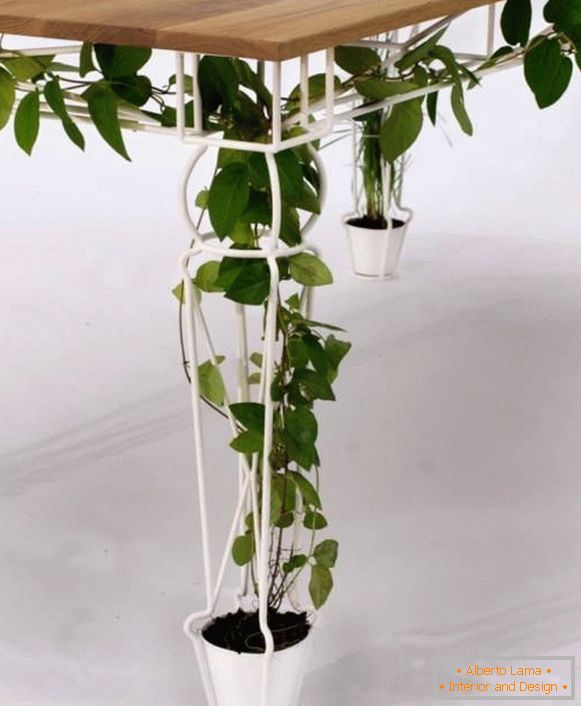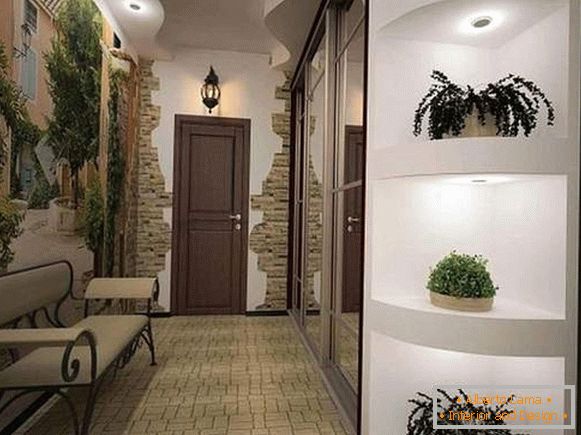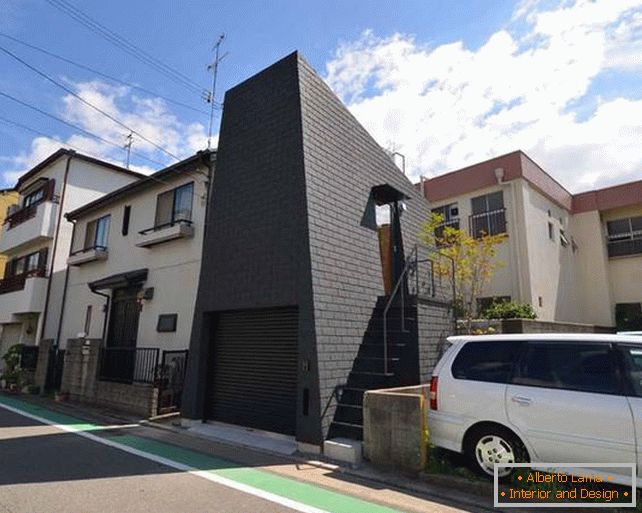
House with a trapezoid shaped garage
A house with a garage that attracted our attention to Europeans or even more Americans may seem unsuitable for life, but it is quite in the spirit of Japanese architects. They already surprised us with apartments that looked more like spacious coffins, and tiny dwellings built on sites the size of a standard parking space.
So, it's time to go to the city of Hyogo, where the designers Hiroshi and Tomoko Sekiguchi designed and built a very small house with black veneer and sloping walls, thus offering its way to squeeze the most out of an almost insignificant piece of land.
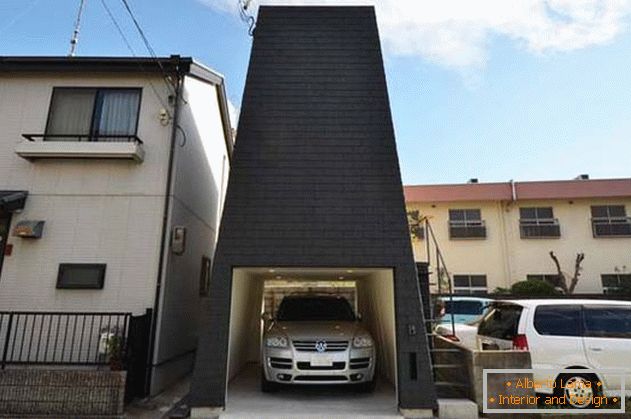
Interestingly, the entire design, according to the architects themselves, was based on the requirement to provide parking space for a large all-wheel drive car. Accordingly, a compact garage forms a ground level above which the upper floor is located - you can get on it with the help of an external staircase.
This is what the authors of the project say:
"In order to create an environment for the safe parking of customers' cars, we developed a plan that would maximize the effective use of a 27 m2 plot by building the walls as close as possible to neighboring houses. The trapezoidal shape of the object is designed to alleviate the oppressive impression that an observer might have upon seeing such a dense building. "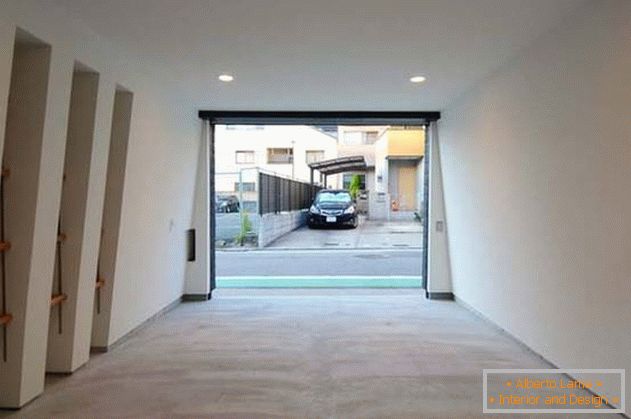
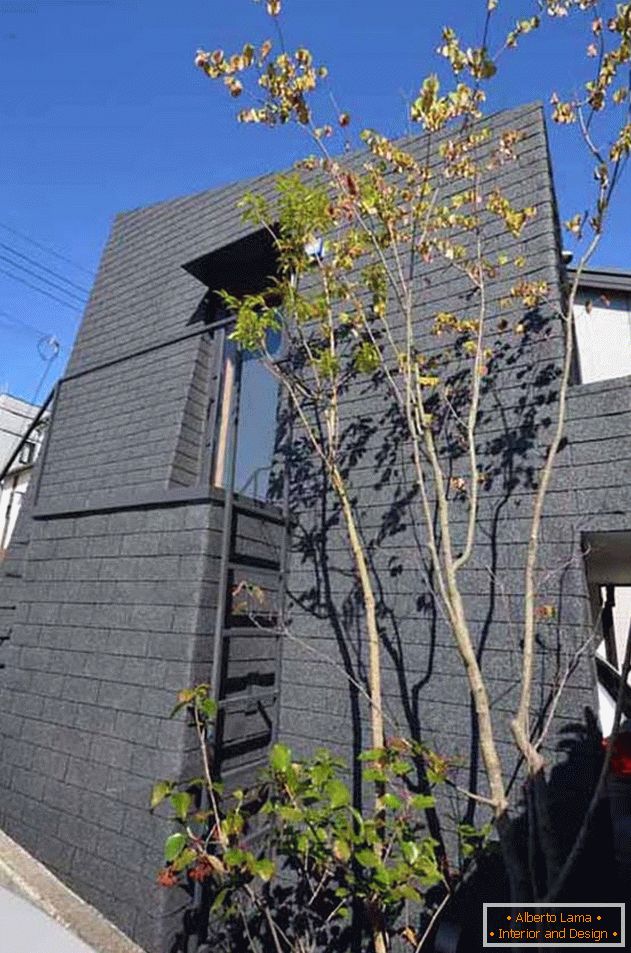
Customers also wanted to be able to fully relax in their home and be protected from prying eyes. For this reason, the walls of the building have a minimum of holes, and daylight falls into the rooms through the ceiling windows. In fact, the dormer windows - the main of the few in the house.
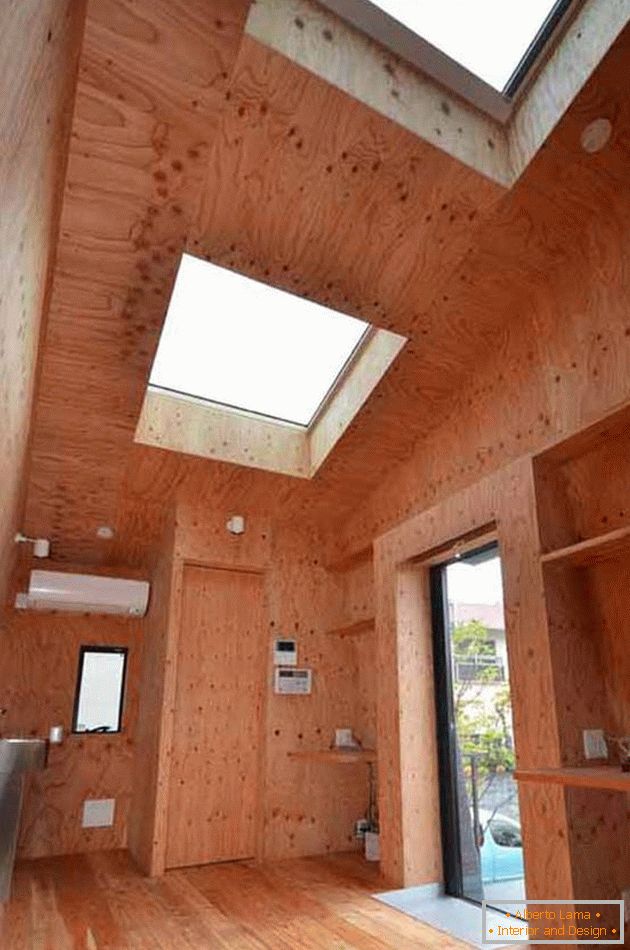
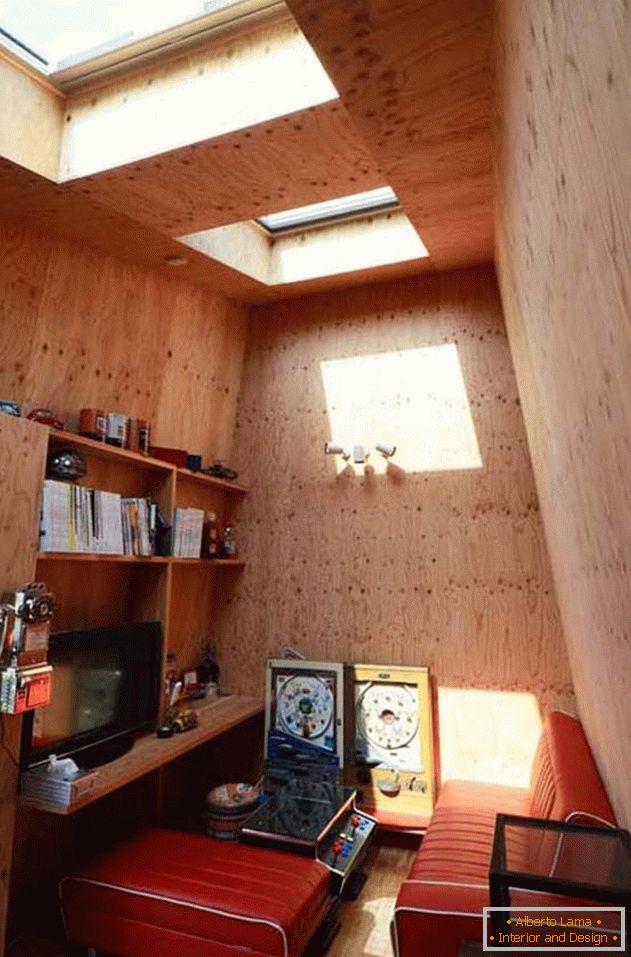
Plywood lining fills the interior with a sense of warmth and comfort, and a slight slope of the side walls towards the central axis of the building prompts the eyes to look upward and makes the space more open and sublime. Outside the house seems an impregnable mountain, and from the inside - on the contrary, a bright refuge in which a person is closer to the sky.
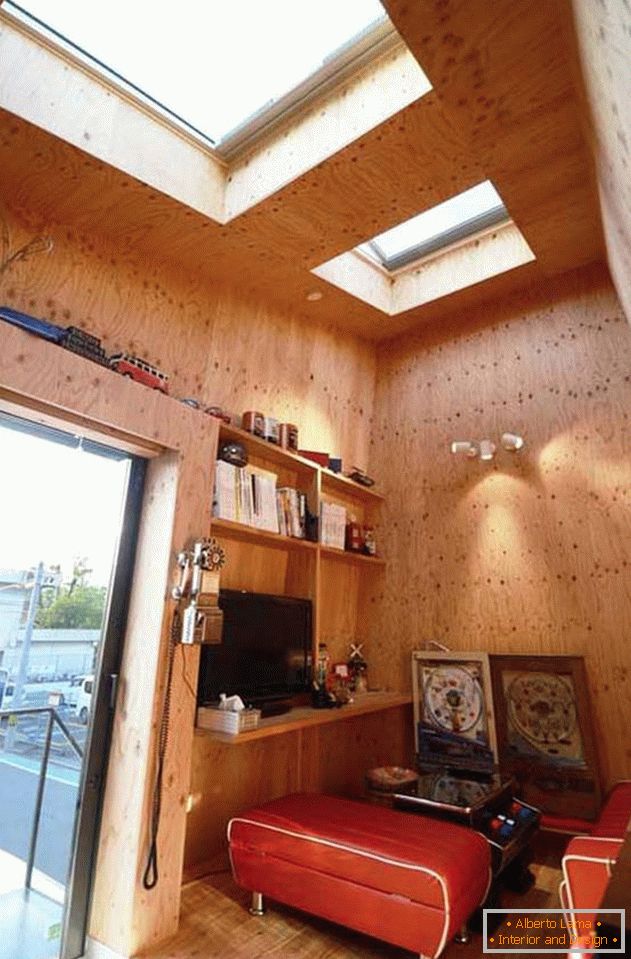
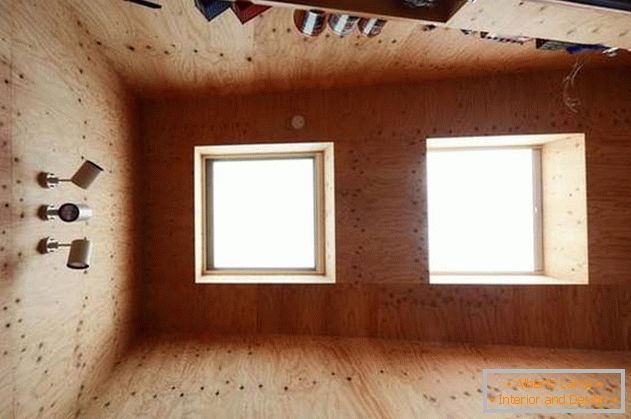
Ultra-compact homes, designed by American architects, often look cloying-sweet, but in Japan they are built as an expression of a conscious response to objective circumstances, as an expression of the creative approach to making the most efficient use of available space.
We will be able to learn a lot from the citizens of this country if we remember the paramount importance of security and take into account our national context. Do you agree with this?

